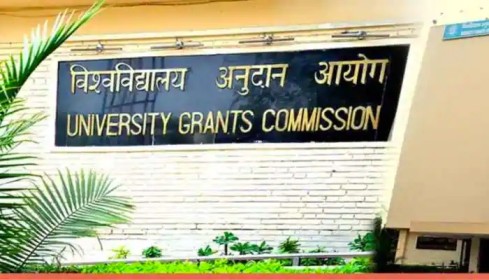UGC proposes transforming of higher education institutions to multidisciplinary institutions


The University Grants Commission (UGC) has released guidelines for transforming higher educational institutions (HEIs) into multidisciplinary institutions, paving way for diverse education. As per the recommendations of the National Education Policy (NEP), higher education institutions will be recognised under three categories which are Teaching-intensive Universities, Research-intensive Universities and Degree-awarding Autonomous Universities.
UGC Chairman M Jagadesh Kumar had earlier stated that all the affiliated autonomous colleges in India, which totals up to 2035 colleges, must become autonomous degree-awarding institutes. To make this implementation, the Draft Guidelines for Transformation of Higher Education Institutions into Multidisciplinary Institutions states, "The affiliated colleges need to achieve the degree-awarding status by passing through different stages of autonomy or by completing the process of becoming part of the cluster to become a large multi-disciplinary HEI. When an HEI becomes a constituent college of the large university it may collaborate with other constituent colleges of the university or open new departments to achieve the status of multidisciplinary HEI."
The draft also states "mobility of credits between institutions" as one of the features of a multidisciplinary institute. It refers to the Academic Bank of Credit (ABC) as a platform that "shall provide the facility and functionality for a student to open an academic account and to get onboard of eligible HEIs" and directs that all HEIs will have to register in the ABC to enable this. Opening up avenues for online education is also mentioned as a key feature of an HEI that offers multidisciplinary education and suggests that the Study Webs of Active Learning for Young Aspiring Minds (SWAYAM) portal of the Ministry of Education can help universities provide a series of online courses for SWAYAM.
"In light of NEP 2020, it is essential to capitalise on the proximity of HEIs in offering multidisciplinary programmes," the guidelines state. Recommendation for collaboration of institutes with each other in order to curate programmes that enhance the nature of degree and education being offered has also been proposed. In light of these recommendations, the draft guidelines make it compulsory for the institutions to approve the NEP-proposed dual degree programme.
To counter poor enrollment rates and lack of resources, the guidelines recommend that colleges form a ‘cluster’ unit to share resources and offer courses and programmes across the domain for the students. This cluster unit of colleges can then shift to becoming a single autonomous unit of degree-awarding colleges. The guidelines also state that a cluster of government colleges will work under a Board of Governors, whose Chairman will be appointed by the state government. The course tuition fee charged for the courses will be as per the respective institution, offering the course.